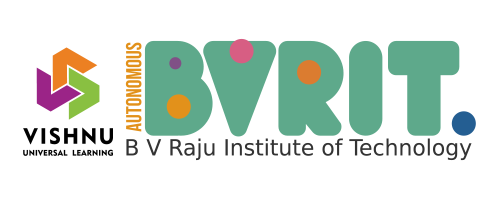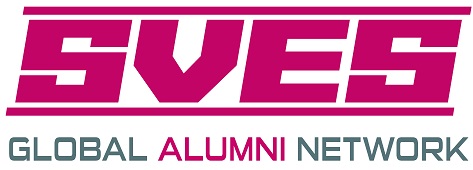Overview.
About Department
The Department of Computer Science and Engineering at BVRIT was started in 1997 with an intake of 40 B.Tech students. Subsequently, the intake was enhanced from 40 to 60 in the academic year 1999-2000, 90 in the academic year 2000-2001, 120 in the academic year 2007-2008, 180 in the academic year 2014-2015, 300 in the academic year 2015-2016, and 540 in the academic year 2024-25. The Department has state-of-the-art infrastructure and computing equipment supported by high-speed internet and wireless networks.
B. Tech (CSE) was accredited by the NBA in 2009, and it was re-accredited in 2013, 2017 (under Tier-II), and 2022 (under Tier-I) for 3 years. M.Tech (CSE) was accredited by the NBA in 2024 for 3 years.
The Department of Computer Science and Engineering is renowned for cutting-edge research and for imparting state-of-the-art education. The Department provides an outstanding research environment complemented by excellence in teaching. Our faculty with rich teaching and research experience aims at delivering top-class education. It also promotes active industry-institute collaboration by identifying areas of interest and participating in sponsored research projects and consultancy services.
The major areas of research include Artificial Intelligence, Machine Learning, Data Science, Cloud and fog Computing, IoT, Cyber Security, Deep Learning, Image Processing, Information Security, Networks, Augmented Reality/Virtual Reality/Mixed Reality, Blockchain Technology, Parallel processing, and Human-Computer Interaction.
1
Program offered
65
Faculty members
3500+
Students graduated
1000+
Research papers
Courses Offered
B.Tech in Computer Science and Engineering
540
Intake
M.Tech in Computer Science and Engineering
12
Intake
Prospects and Future of CSE
This has been one of the most lucrative and competitive courses to study since its inception in Engineering Colleges/Institutes and Universities. When India’s computer industry created a mark in the world of business and gained super trust and revenue for the nation it also created a large amount of well paid jobs for Computer Engineering students.
Computer Science and Engineering students will learn about basic engineering techniques, as other engineering students, during first year course. From second year they will be exposed to core computer science subjects including Programming, Advanced Data Structures, Digital Logic Design, Algorithms, Computer Networks, Operating Systems, Web Technologies, Databases and Computer Architecture are few to mention apart from trending subjects like Cloud Computing, Artificial Intelligence, Machine Learning, Data Science, IoT, Cyber Security, Deep Learning, Image Processing, and Blockchain Technology.
As Computing is extensively applied to almost every walk of life it created massive jobs for Computer Engineering students. At the same time, more demand and application kept it research funding alive attracting many students to opt for higher education.
Core companies offering jobs to Computer Science Graduates include
Government organizations like DRDO, ISRO, ECIL and BHEL etc. Also, there are a huge number of multinational and national software companies which offer jobs. To name few, Microsoft, Google, Amazon, IBM, TCS, Capgemini, Oracle, Cisco, Infosys, and many more.
CSE in BVRIT
- State-of-the-art advanced technologies laboratories include AI&ML Lab, Data Science Lab, Cyber Security Lab, Cloud Computing Lab, IoT Lab, Networks Lab, Programming Lab and Coding Club,
- Virtusa PEGA University Connect Lab, Emerging Technology Center, PEGA Lab etc.
- Consistent record in student placements
- Well paid students-internships
- Outstanding academic results
- National level awards, rewards and recognitions in coding competitions and project exhibitions
- Funded projects and refresher courses
- Quality student projects
- Highly qualified and ratified faculty members
- Industry 4.0 ready curriculum
- The huge prospect of higher education in India and abroad in trending areas
- Quality research
Collaborations
The Department of CSE has collaborations and MOUs with various organizations such as
- Microsoft
- IBM
- TCS
- PEGA
- NASSCOM
- Virtusa
- ElevenO1
- Bennett University
- Mission R&D etc. for empowering technology, learning and placements.
Training
The department organises conferences, workshops and short-term courses to keep the students abreast of advanced technology and the best campus placement training is provided to all the students.
Vision & Mission
Vision
To become a regional leader in providing the high quality education in the field of Computer Science and Engineering and nurturing the students to compete globally, with the curricula that imparts theoretical foundations and hands on experience of Computer Science and Engineering and also the foundations of social, ethical, and liberal education needed to make significant contributions to society.
Mission
M1. The department seeks to produce global competent graduates and post graduates who will shape the future of the society, by understanding the societal problems and can provide the optimal solution.
M2. The department strives to impart the education to a new generation of interdisciplinary students who build bridges, and innovate at the intersection of multiple scientific fields.
M3. The department would like to enable other academic disciplines through core Computer Science and Engineering, and to expand the horizons of the Computer Science and Engineering discipline by considering the research challenges of other fields.
PEOs, POs and PSOs
Programme Educational Objectives
PEO1. The Graduates will have sufficient technical knowledge to enter in high technology workforce, and make significant contributions to Computer Science and Engineering.
PEO2. Prepare graduates for professional career in computer science and multidisciplinary environments, through the research, design and development of a wide range of applications, which helps further the state’s economic growth by developing innovative ideas, and translating them into commercial products that benefit society.
PEO3. To pursue lifelong learning through, professional training and membership in professional societies and to be a effective communicator with non-technical stakeholders in computer and software systems development, maintenance and administration.
Program Outcomes
PO1. Engineering Knowledge: Apply the knowledge of mathematics, science, engineering fundamentals, and an engineering specialization to the solution of complex engineering problems.
PO2. Problem Analysis: Identify, formulate, review research literature, and analyze complex engineering problems reaching substantiated conclusions using first principles of mathematics, natural sciences, and engineering sciences.
PO3. Design/Development of Solutions: Design solutions for complex engineering problems and design system components or processes that meet the specified needs with appropriate consideration for the public health and safety, and the cultural, societal, and environmental considerations.
PO4. Conduct Investigations of Complex Problems: Use research-based knowledge and research methods including design of experiments, analysis and interpretation of data, and synthesis of the information to provide valid conclusions.
PO5. Modern Tool Usage: Create, select, and apply appropriate techniques, resources, and modern engineering and IT tools including prediction and modeling to complex engineering activities with an understanding of the limitations.
PO6. The Engineer and Society: Apply reasoning informed by the contextual knowledge to assess societal, health, safety, legal and cultural issues and the consequent responsibilities relevant to the professional engineering practice.
PO7. Environment and Sustainability: Understand the impact of the professional engineering solutions in societal and environmental contexts, and demonstrate the knowledge of, and need for sustainable development.
PO8. Ethics: Apply ethical principles and commit to professional ethics and responsibilities and norms of the engineering practice.
PO9. Individual and Team Work: Function effectively as an individual, and as a member or leader in diverse teams, and in multidisciplinary settings.
PO10.Communication: Communicate effectively on complex engineering activities with the engineering community and with society at large, such as, being able to comprehend and write effective reports and design documentation, make effective presentations, and give and receive clear instructions.
PO11.Project Management and Finance: Demonstrate knowledge and understanding of the engineering and management principles and apply these to one’s own work, as a member and leader in a team, to manage projects and in multidisciplinary environments.
PO12.Life-long Learning: Recognize the need for, and have the preparation and ability to engage in independent and life-long learning in the broadest context of technological change.
Program Specific Outcomes
PSO1. Foundations of Computer Science: Ability to understand the principles of computer science. Student can possess professional skills and knowledge of software design process.
PSO2. Applications of Computing and Innovation: Ability to use theoretical and practical concepts in interdisciplinary domains to provide solution to new ideas and innovations.










